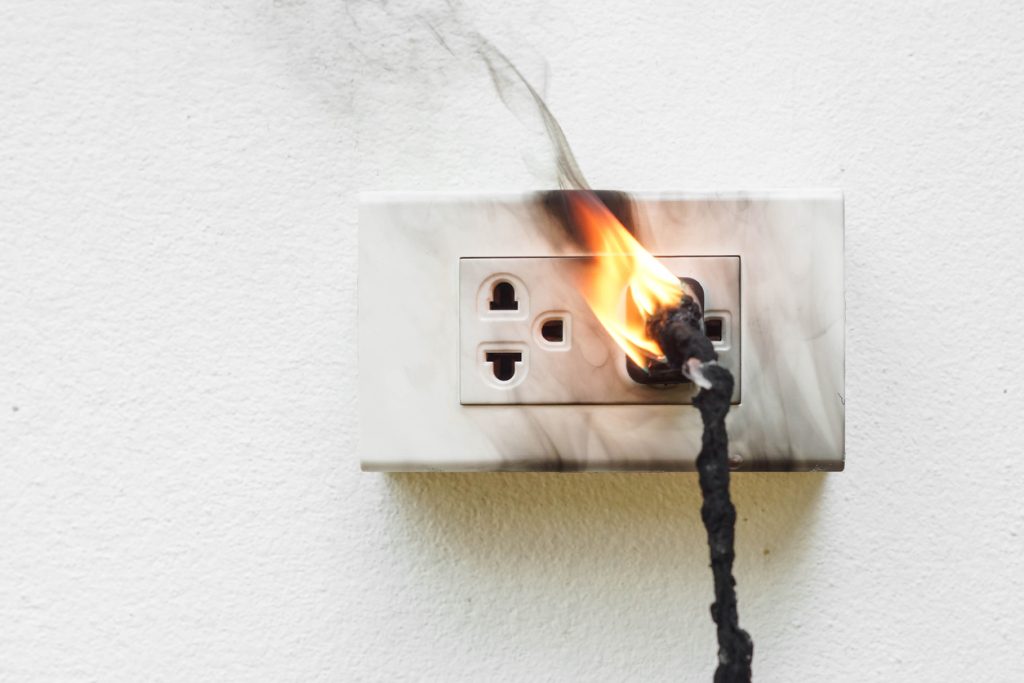Overloading electrical outlets is common yet potentially dangerous. With the increasing number of electronic devices used in households and offices, it’s easy to overload electrical outlets, especially in older buildings with outdated electrical systems.
Many people are unaware of the dangers associated with overloading outlets and may continue to plug in multiple devices without realizing the risk they’re creating. Overloading outlets can be dangerous for several reasons.
Fire Hazard
When an outlet is overloaded, the electrical current flowing through the wires can become too much for them to handle. As a result, the wires can overheat, and if left unchecked, they can ignite nearby combustible materials. This can include anything from curtains and carpets to furniture and electronics, and it can happen incredibly quickly. Electrical fires put people and property in harm’s way.
Damage to Appliances
Another significant danger of overloading outlets is the potential for damage to appliances and electronic devices. When an outlet is overloaded, it can cause the electrical current to become unstable, damaging any devices connected to it. Over time, this can lead to malfunctions, reduced performance, and even complete failure of the appliances. The risk is particularly high for sensitive electronics, as they’re more susceptible to damage from power surges and fluctuations. Additionally, if an appliance is damaged due to overloading, it may need to be repaired or replaced, which can be costly and inconvenient.
Electrical Shock Hazard
Overloading an outlet can also pose a significant risk of electrical shock. When an outlet is overloaded, the wiring can become damaged, or the outlet can become loose, which can cause the wires to come into contact with each other or with metal objects nearby. If someone touched an object conducting electricity while standing on a conductive surface, they could be at risk of electrical shock.
Tripping Circuit Breakers
Overloading an outlet can cause the circuit breaker to trip. The circuit breaker is designed to protect your electrical system from damage by cutting off the power when it detects an overload. When an outlet is overloaded, the circuit breaker will trip, cutting off power to that circuit. This can be inconvenient, as it can cause a loss of power to other appliances or devices connected to the same circuit. In addition, tripping the circuit breaker frequently can wear it out, leading to the need for replacement.
In conclusion, overloading outlets can pose serious dangers. These risks can result in injury, property damage, and inconvenience, making it essential to prevent overloading outlets. To deal with damages caused by overloading an outlet, you should contact professionals for help. For Modesto, CA, residents, contact The Electric Company for electrical repair services.




